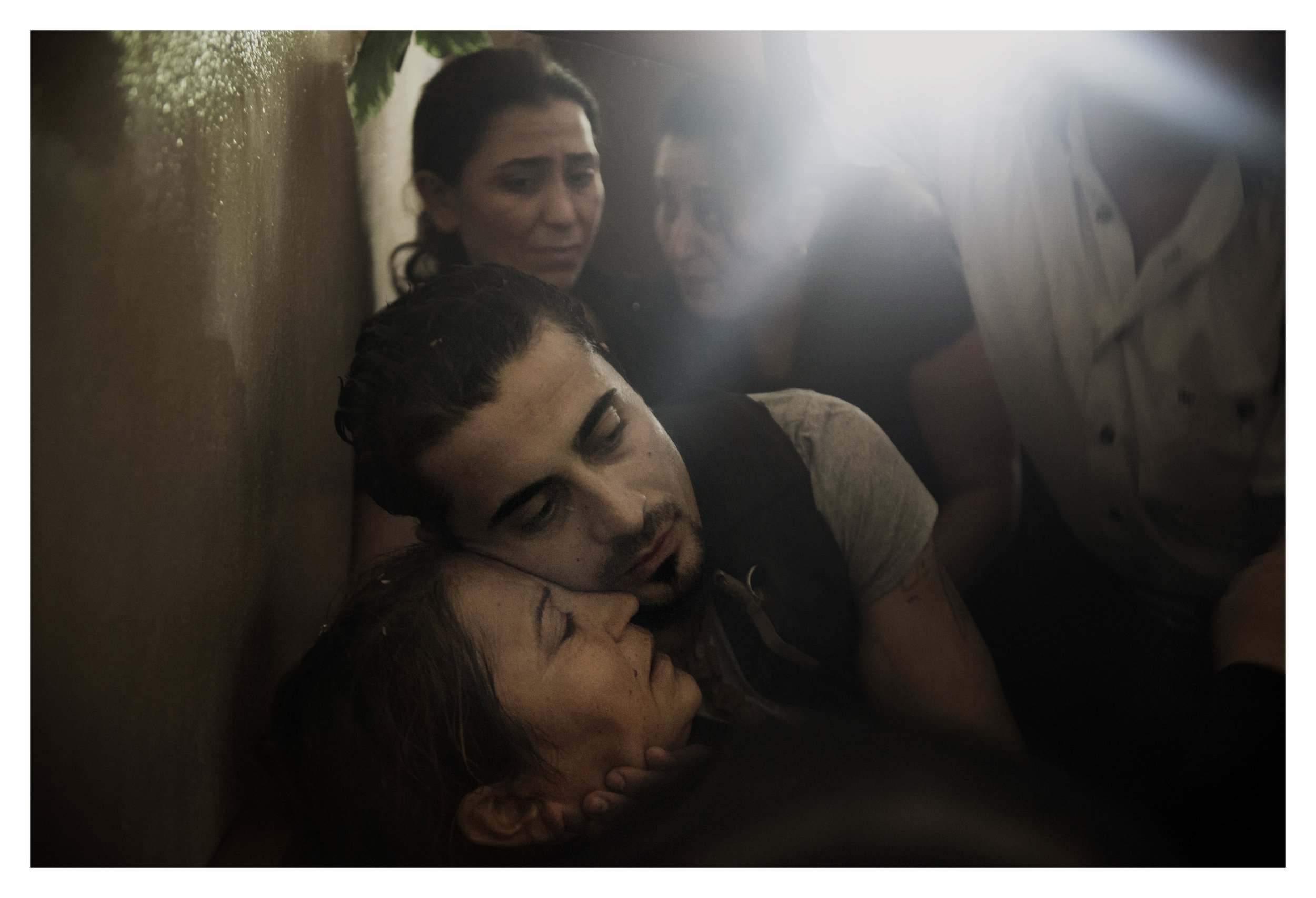
Latakia, Syria In the Syrian province of Latakia, a regime stronghold, a small village mourns the loss of a son. Killed in an ambush at the other end of the country. The lieutenant was the first soldier to fall from this village of 125 people. (ran in the NYT, 2013)
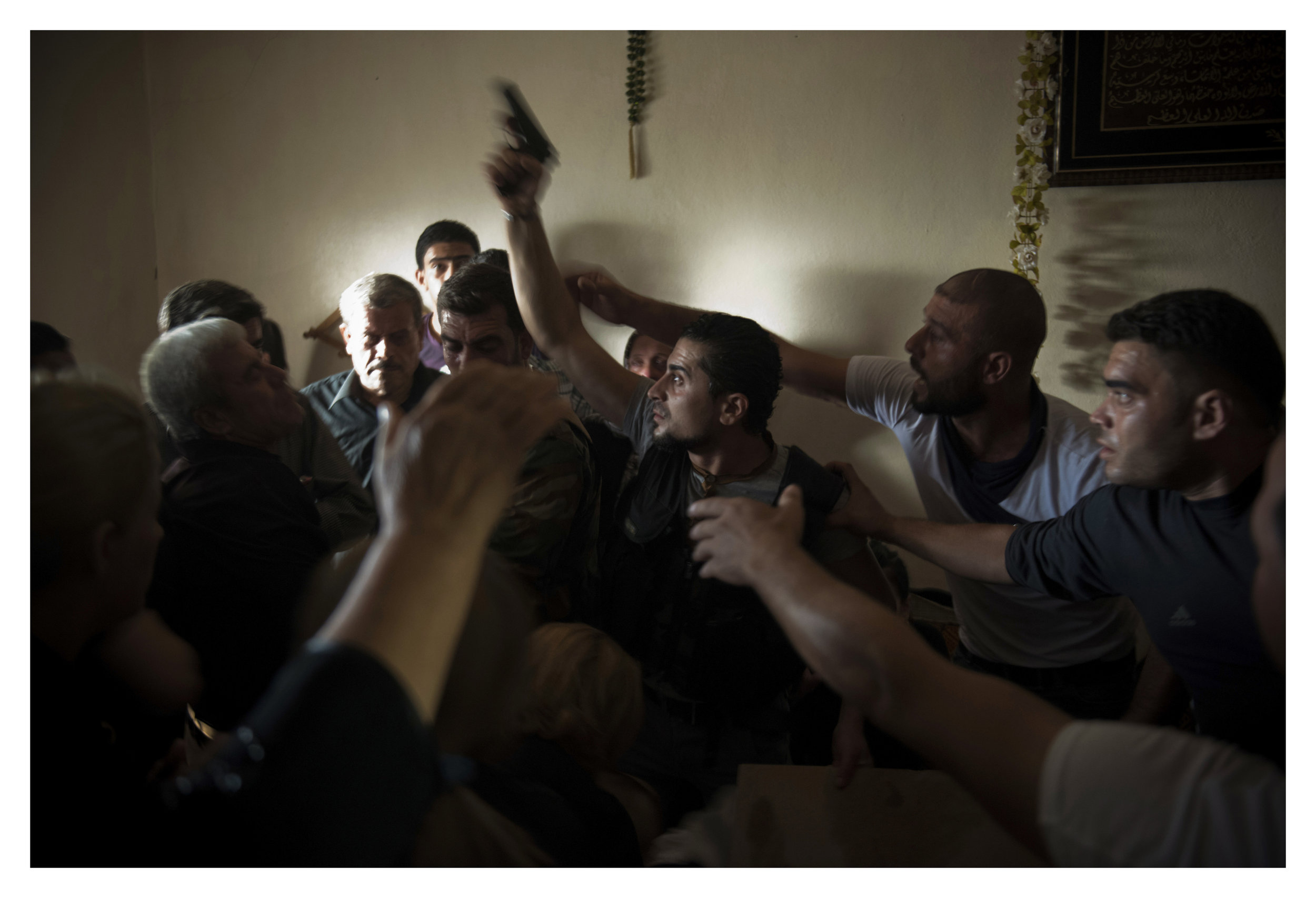
Bassel Barhoum (center) yells angrily after looking inside his brother's casket at his funeral in the village of Daqaqa in Latakia Province, Syria. Abu Layth died while fighting as an officer in the Syrian Army.
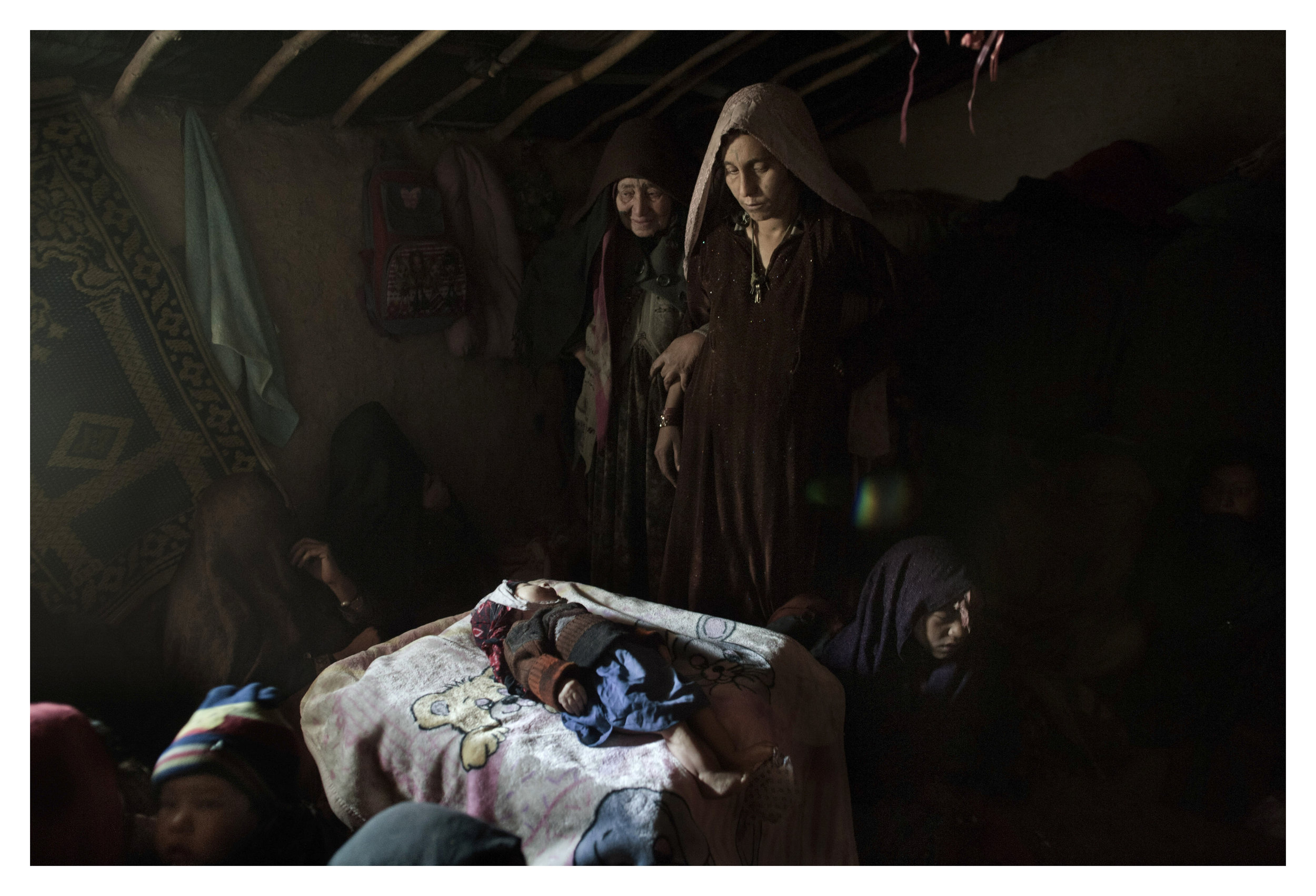
(NYT embargo until Feb. 19) The mother of Khan Mohammad, a 3 month old child who passed away due to the cold early Wednesday morning, is comforted before the child is washed and buried in the Nasaji Bagrami Camp for displaced persons in Kabul, Afghanistan. Feb. 8, 2012. (Photo by Andrea Bruce for The New York Times)
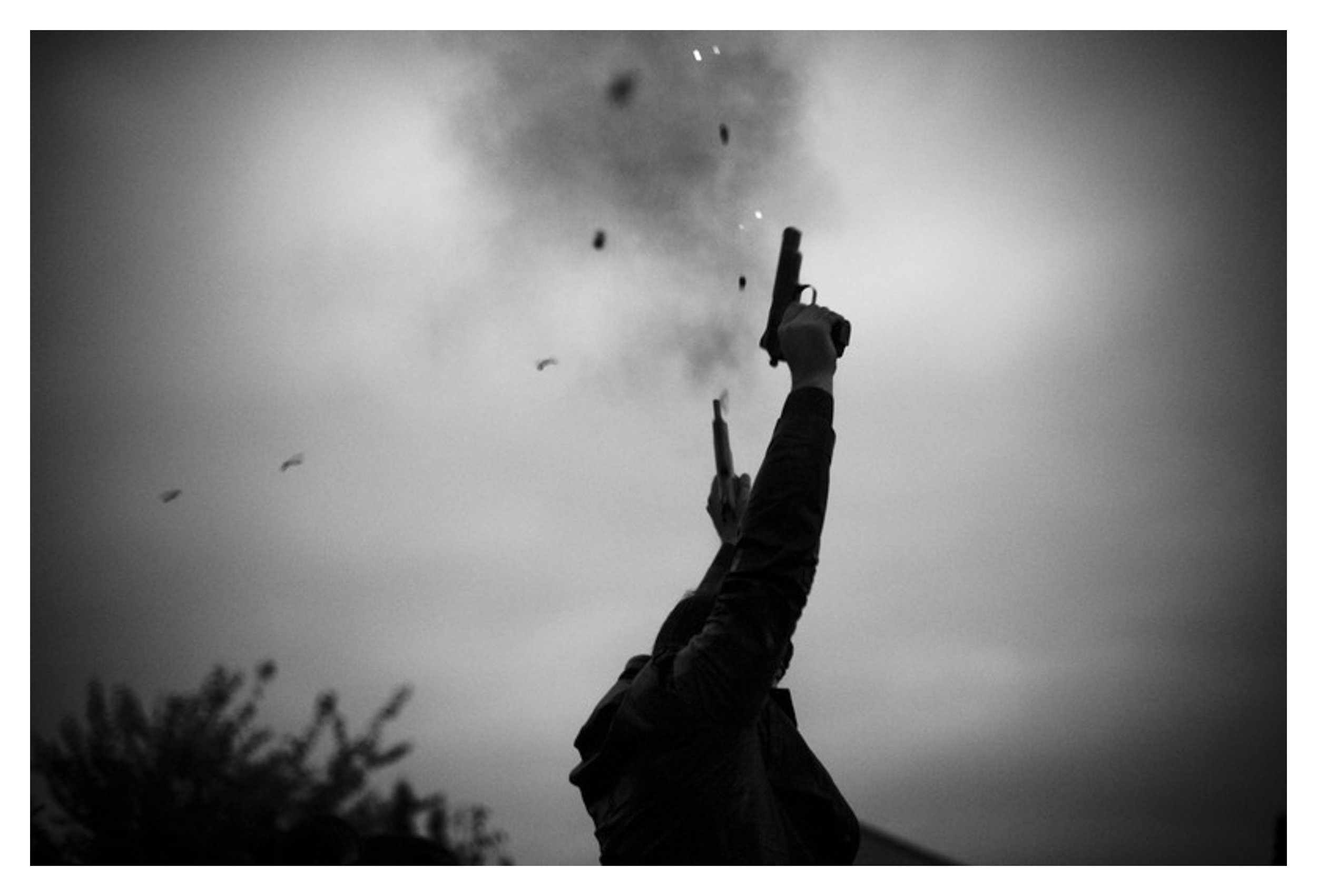
Guns are fired in the air to celebrate the wedding party for Medina Khamkoyeva.
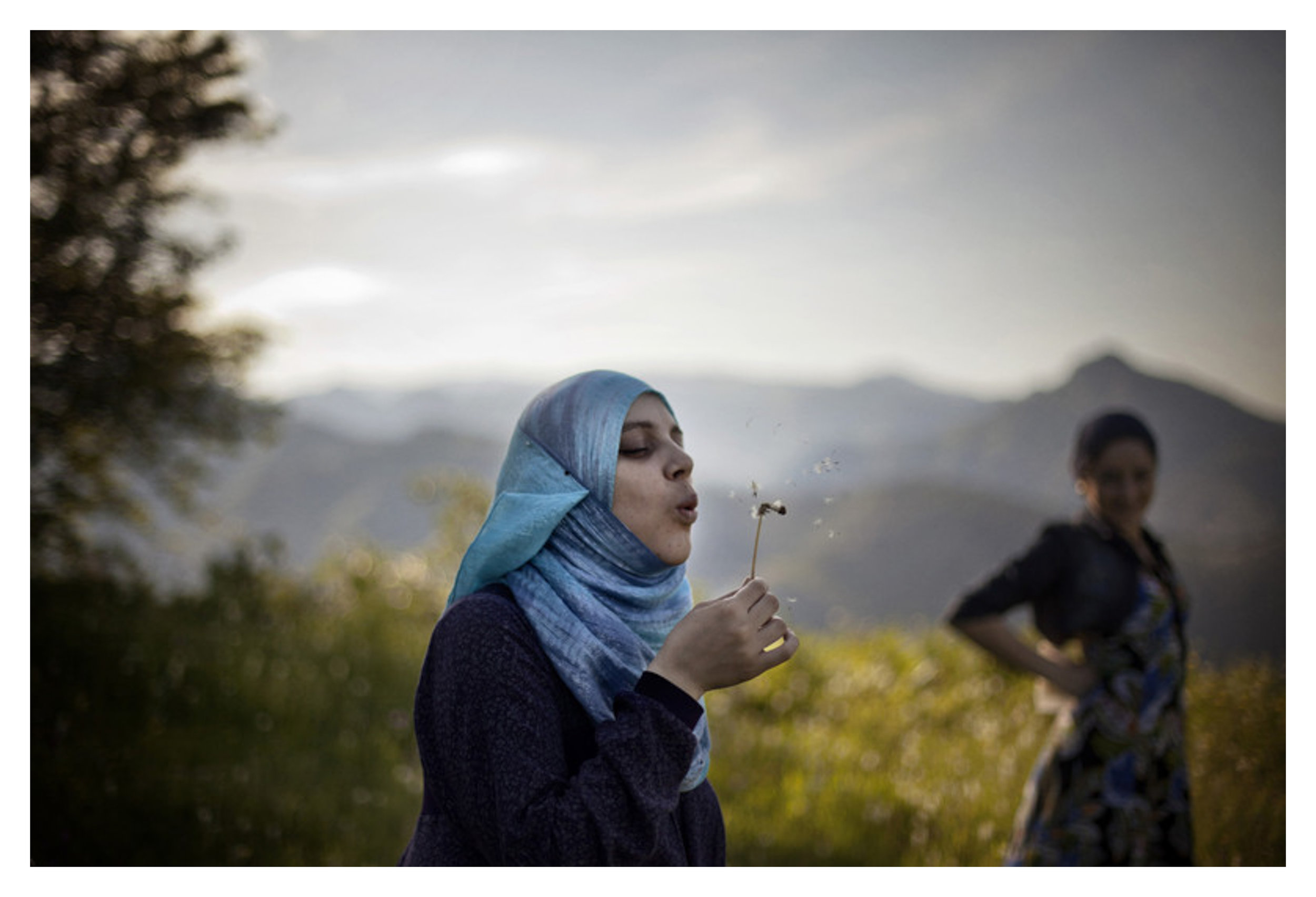
Dagestan
Ayat walks along the mountain roads of northern Dagestan, a Republic of Russia in the Caucasus. Ayat is a relatively new convert to Salafism and was visiting her family which is of the Sufi faith---two takes on Islam that are often at war with each other in Dagestan.
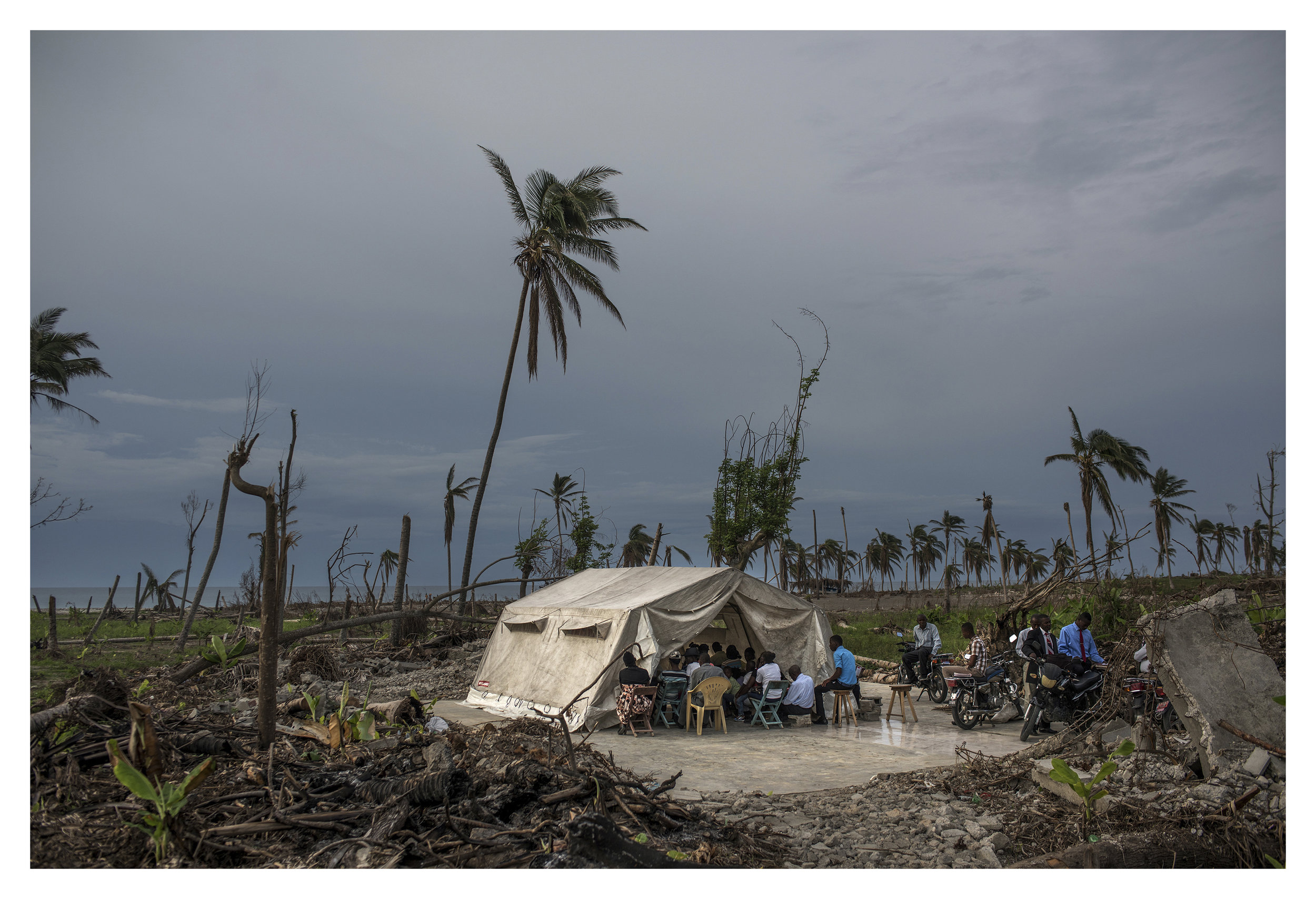
BRA2016G00003
The Elise Adventure Morija Church was completely swept away during Hurricane Matthew. The parishioners still hold services on the foundation of the church, under a tent.
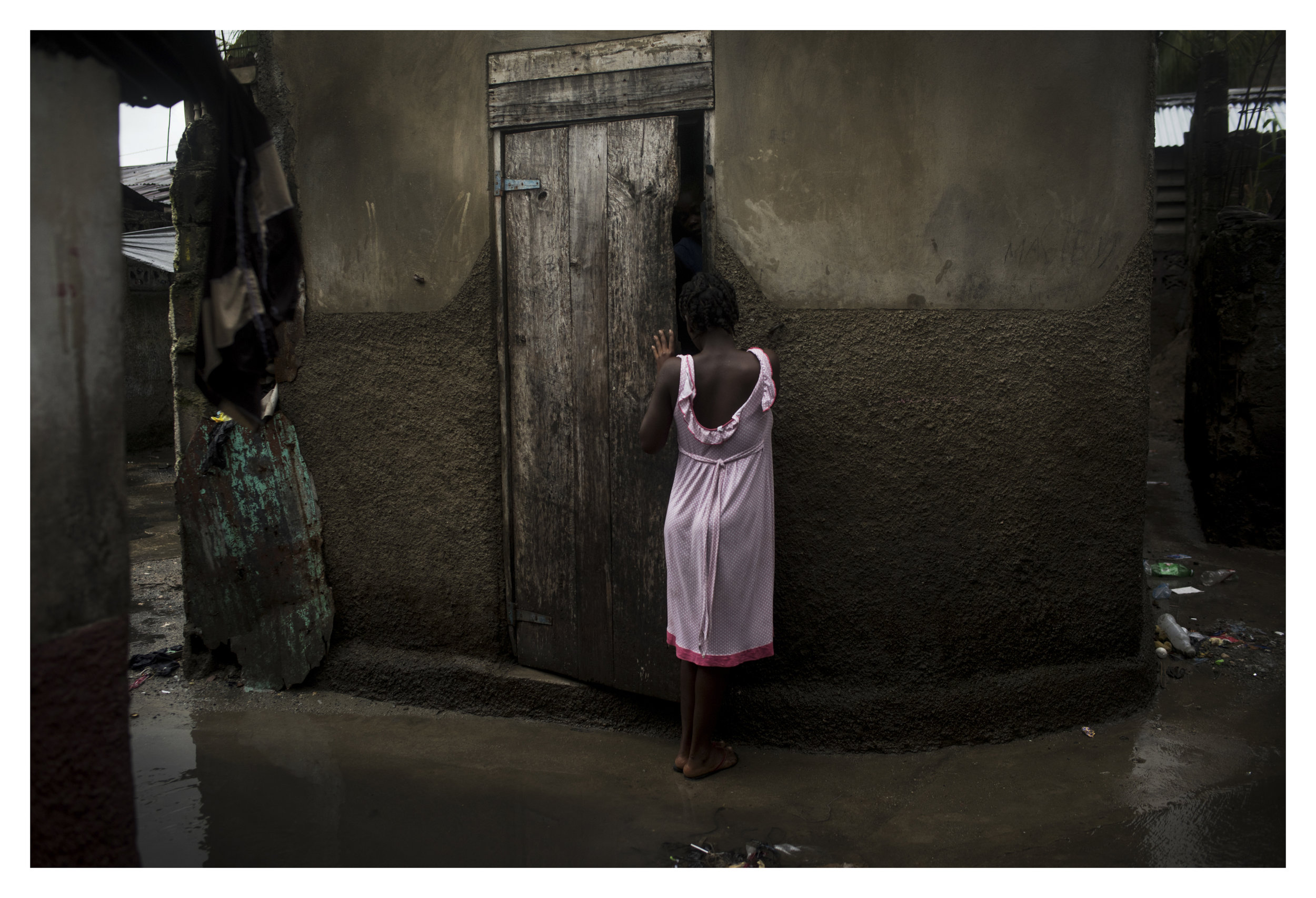
BRA2016G00003
Nov. 24, 2016 Cap Haitian, Haiti SOIL collects the refuse from their composting toilets, distributes new compost ingtoilets in Sada II and the waste compost site in Limonade.
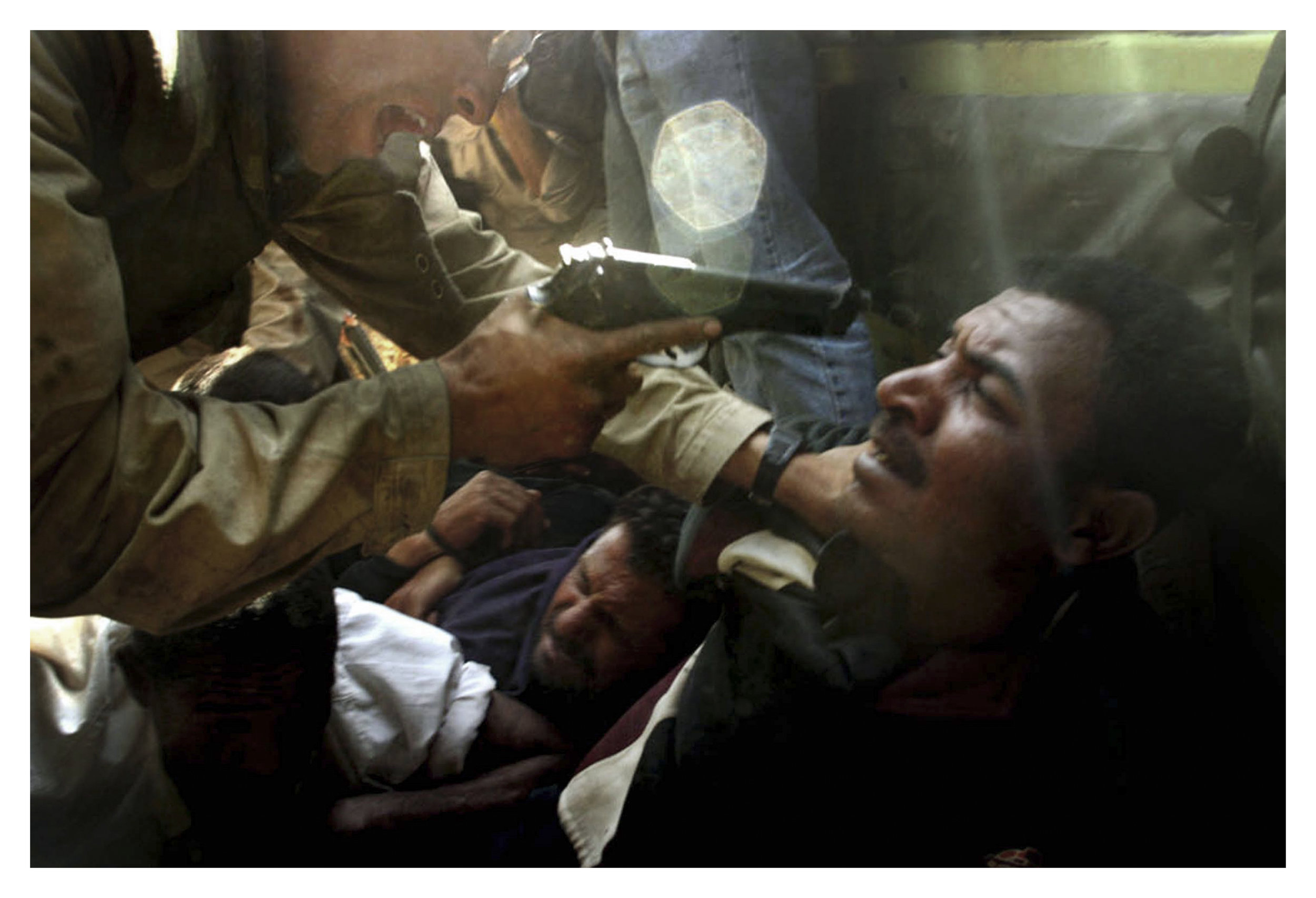
On Iraqi Ground
A US Marine tells a detained suspected resistance fighter to be quiet and keep his head down after catching him and several others with an arsonal of guns. cawba "On Iraqi Ground"
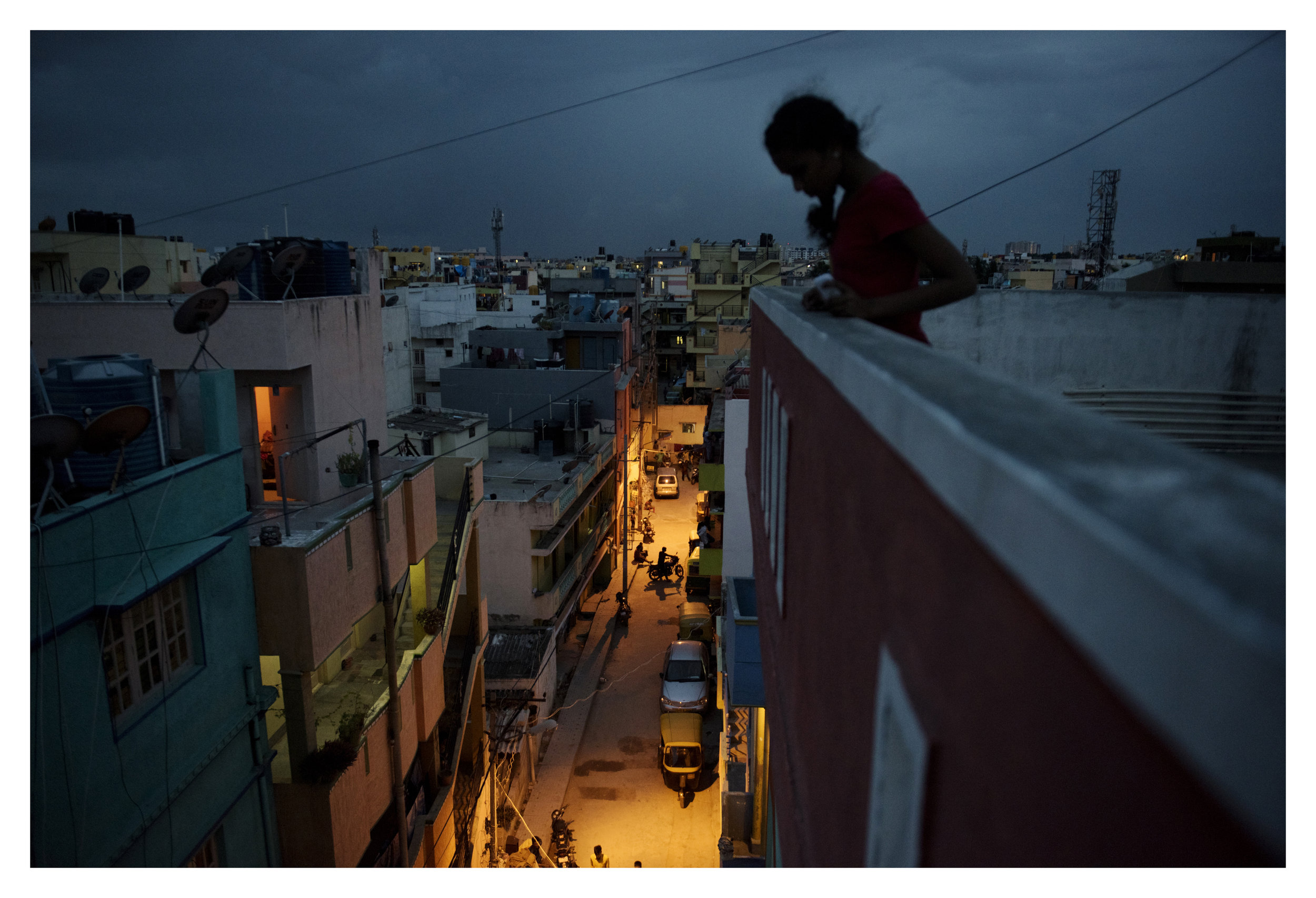
BRA2016G00002
Bangalore, India - Factory Girls June 19, 2016 photo by Andrea Bruce/ for the NYT Looking at the street life below, Reena Bihari stands on the edge of the dorm roof where she lives with other factory girls for the K. Mohan clothing factory in Bangalore, India. India is trying to transform itself into a manufacturing economy, and for this, it must find workers. In this case, workers have been brought here at government expense from remote villages, from a population that has never before been thrust into the economy: unmarried women.
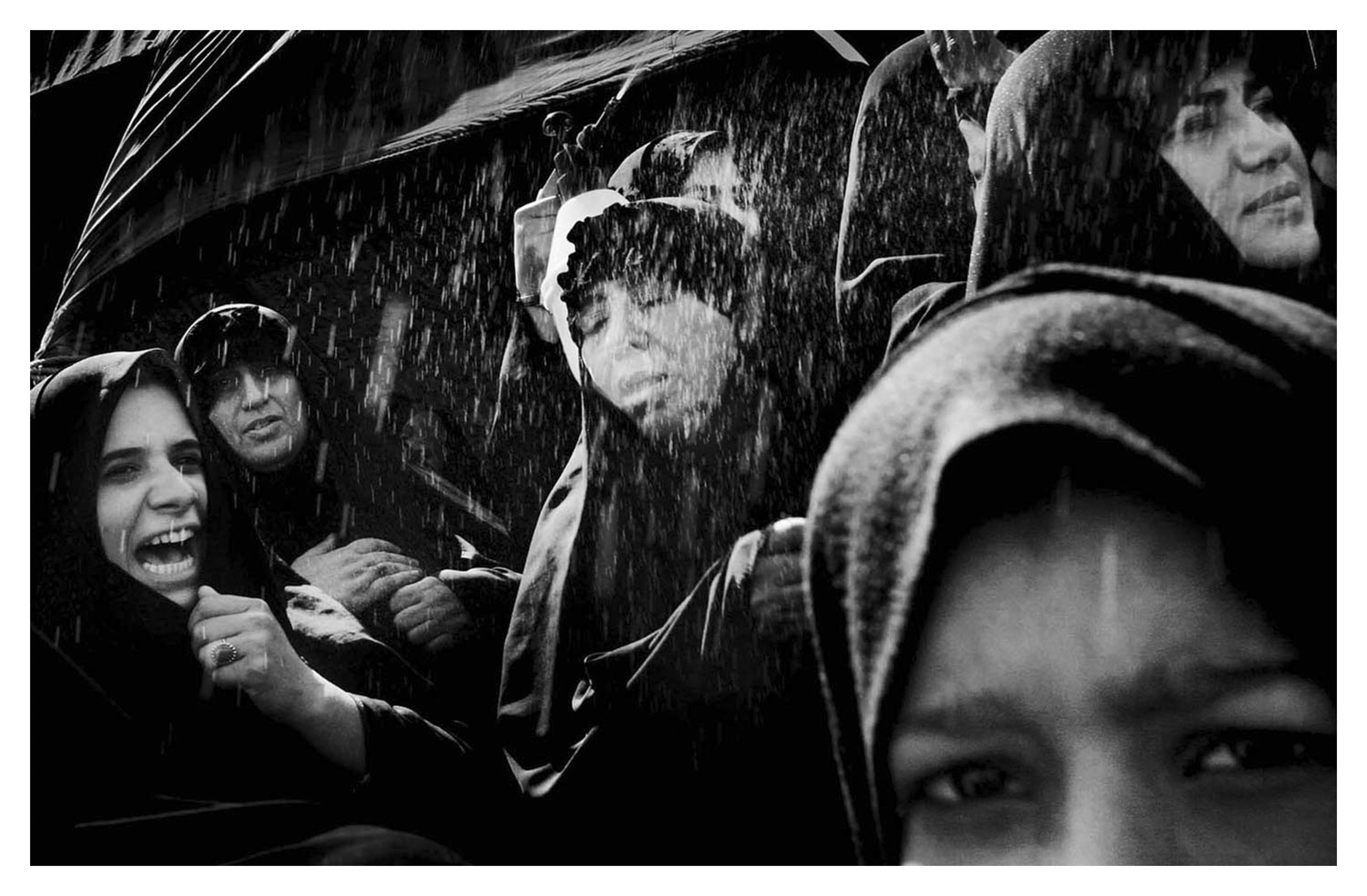
Widows March
"Widows March" Draped in mourning veils and Abayahs, over 500 women led a march in Sadr City against the violence plagueing their neighborhood. "The people who pay for the violence are the women here," said Khafaji, whos brother was killed in March. They sprayed water over themselves for relief from the mid-afternoon heat.
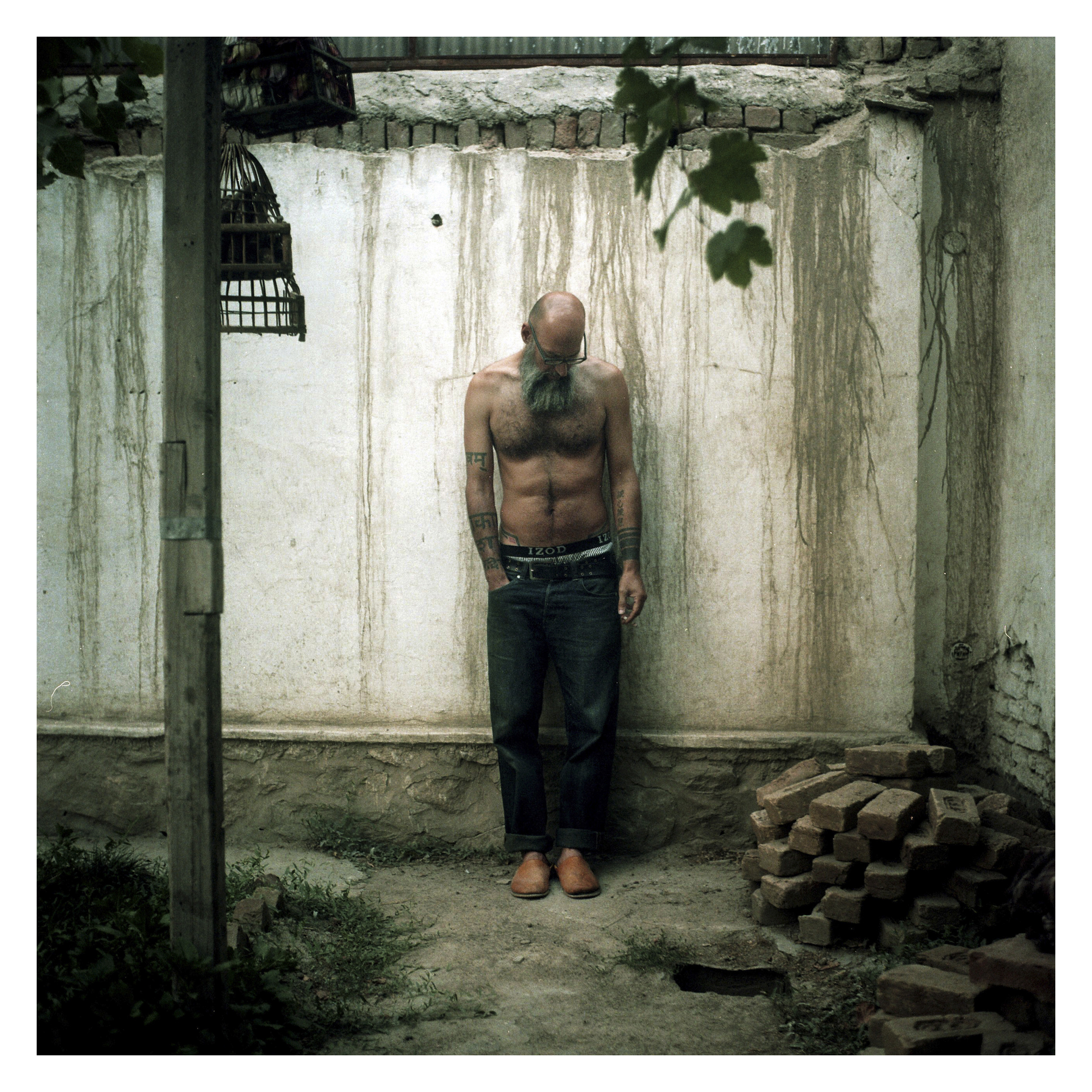
Aman Mojadidi, 41, artist. "Afghanistan definitely didn?t seem like home per se but it was very much this place where my family was from, and I still had this very strong kind of sense of having an Afghan identity ? it makes me kind of understand more my American identity. It's funny ... [it took] growing up in the U.S. to feel Afghan and it took living in Afghanistan to feel American. "I think probably by far one of my favorite ones [art projects], yeah, was the pay back, which was basically a fake checkpoint set up on the street in Kabul where we offered money back to some vehicles rather than asking for bribes ? trying to take something that a lot of people spoke about all the time, which was the corruption, the bribes that they have to pay and all this kind of stuff and turn it into, you know, an art work and kind of flip it on its head."
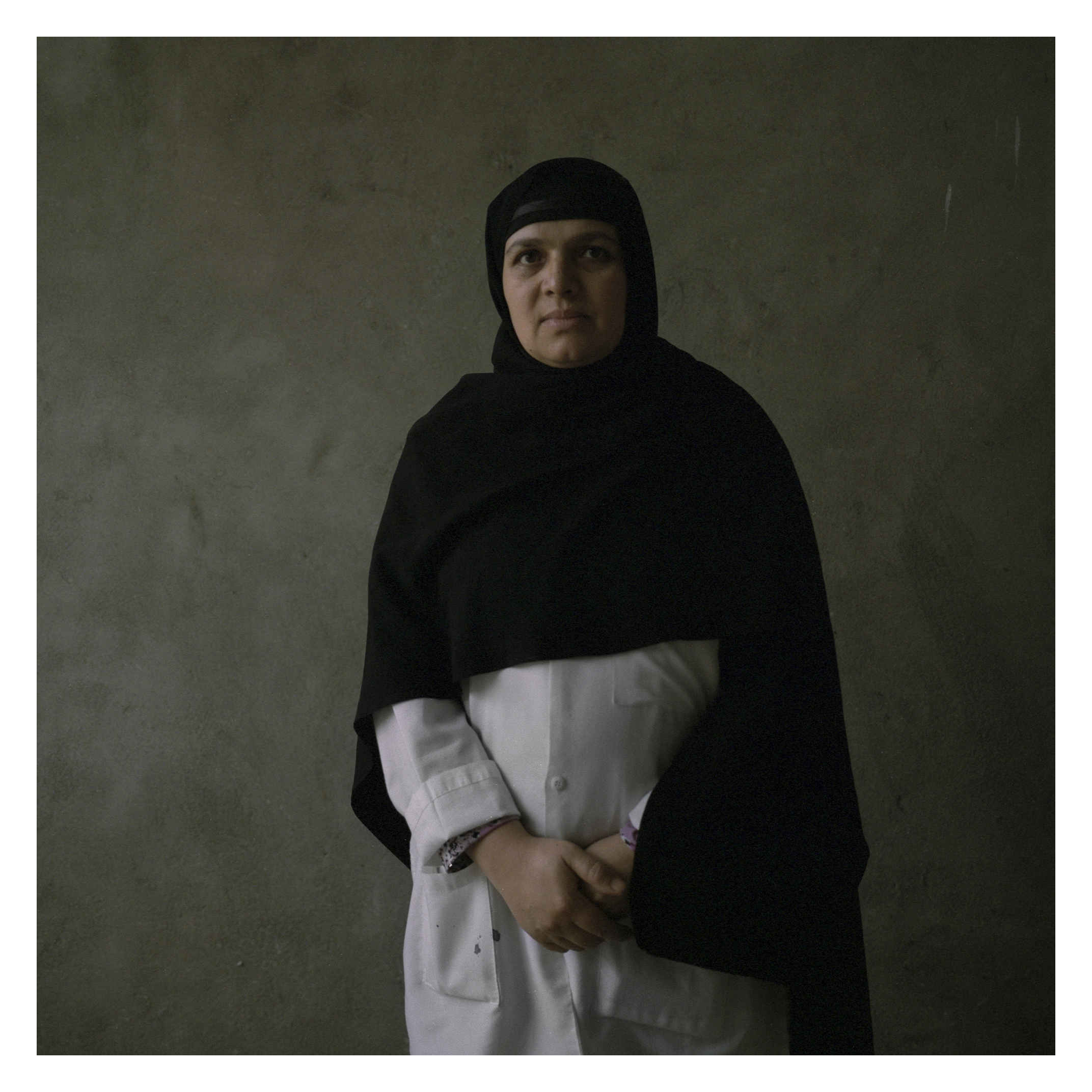
Afghanistan's Warriors Dr. Sudia bis Malaha Haqmal, 39, has been a doctor for over four years in Khost, Afghanistan. "The lack of education here is the real problem," she said.












